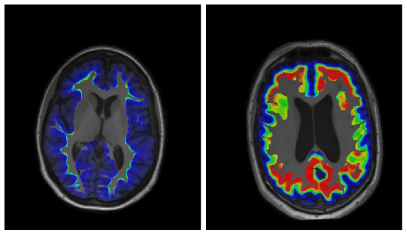Active Studies
Browse a listing of research studies currently underway and led by Mesulam Center investigators.
Answer some questions to see if our research may be a good fit for you.

Alzheimer’s Disease Neuroimaging Initiative 4 Study (ADNI-4)
This observational study aims to determine the relationships among the clinical, cognitive, imaging, genetic and biochemical biomarker characteristics of the entire spectrum of Alzheimer's disease (AD), as the pathology evolves from normal aging through very mild symptoms, to mild cognitive impairment (MCI), to dementia.
Alzheimer's Disease Research Center (ADRC)
The purpose of the Northwestern Alzheimer’s Disease Research Center (NU ADRC) research registry is to 1) provide state-of-the-art care to patients with mild cognitive impairment, Alzheimer’s disease and related disorders, and to 2) support clinical and basic research on memory and aging collecting, storing, and disseminating clinical data, brain imaging, and biological samples from research participants to collaborators.
Longitudinal Frontotemporal Dementia Study (ALLFTD)
This observational study aims to understand how Frontotemporal Lobar Degeneration (FTLD) syndromes progress over time, and to develop new tools to help with diagnosis and eventual treatment. The study is enrolling patients with FTLD syndromes. Additionally, the study is enrolling healthy members of families where there is a strong family history of FTLD or known FTLD-associated genetic mutation.
AHEAD 3-45 Study
This interventional trial is enrolling participants age 50 to 80 years old who are cognitively normal but have evidence of elevated or somewhat elevated amyloid in the brain. It is a Phase III study to test the efficacy of an anti-amyloid antibody medication (lecanemab) in reducing the levels of amyloid and potentially delaying the onset of cognitive impairment.
Language in Primary Progressive Aphasia
The Language in Primary Progressive Aphasia (PPA) aims to better understand progression in PPA and its link to brain changes, increase awareness of PPA, and identify biomarkers leading to earlier diagnosis and treatment. Participants are asked to undergo tests of language and thinking abilities and have brain scans every two years.
Longitudinal Early-onset Alzheimer's Disease Study (LEADS)
This observational study enrolling participants with young-onset Alzheimer disease (ages 40-64). This study assesses clinical/cognitive measures, imaging, biomarker, and genetic characteristics to look at disease progression in individuals with early onset Alzheimer's disease (EOAD). This includes individuals with mild cognitive impairment or mild dementia due to probable underlying Alzheimer disease.
Alzheimer’s Plasma Extension Study (APEX)
This study is an observational study designed to capture longitudinal follow-up of plasma biomarkers and cognitive and functional assessments on individuals who screen failed in the AHEAD3-45 study over approximately 4 years.
Veri-T Study
This interventional trial is enrolling participants age 18-85 with Semantic Variant Primary Progressive Aphasia (svPPA). The purpose of this Phase I study is to learn more about the safety and tolerability of oral study drug called Verdiperstat compared to placebo in patients with svPPA due to FTLD-TDP. People who have been diagnosed with svPPA are encouraged to see if they are eligible for the study.